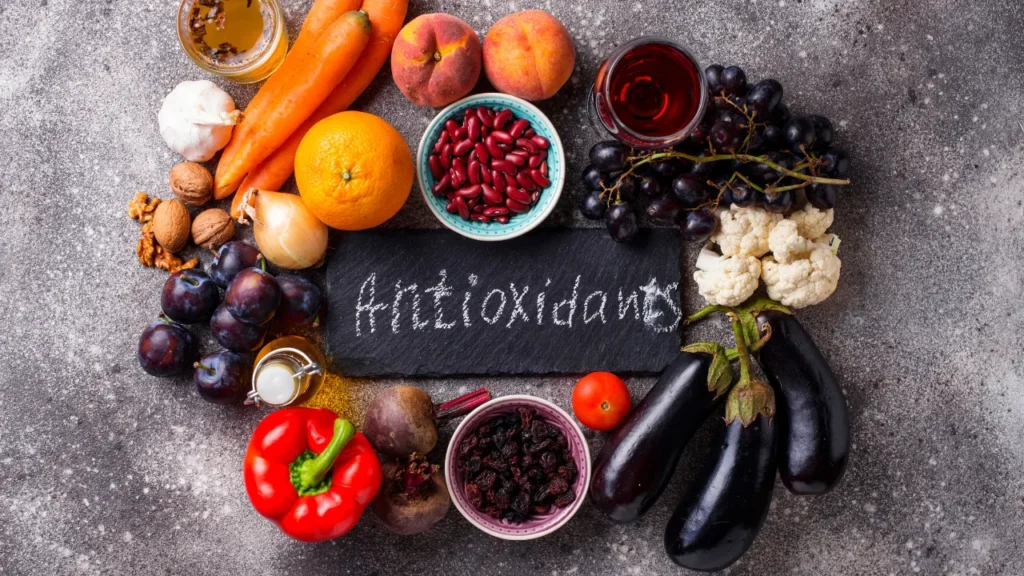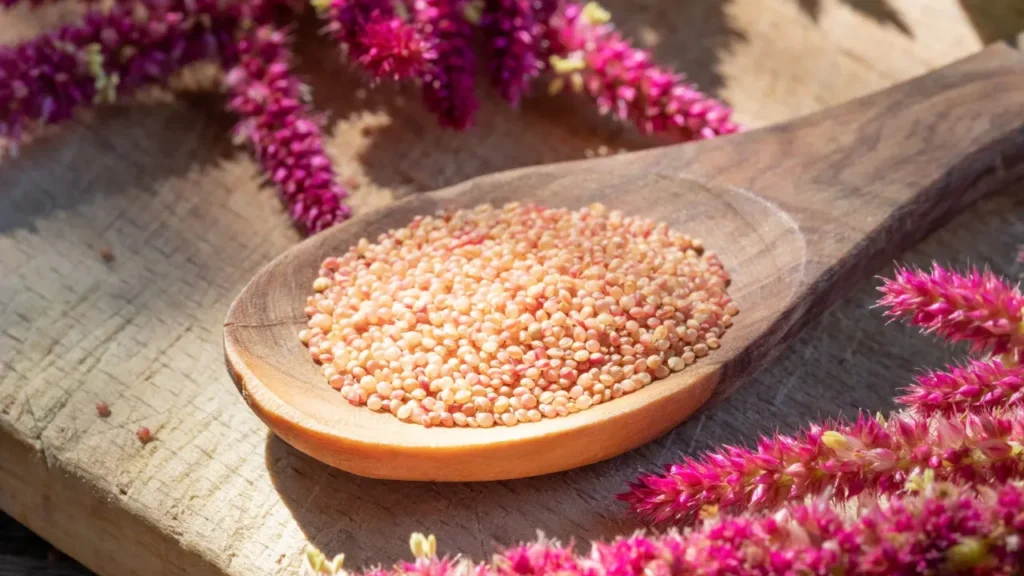Amaranth is a plant that has a long history of being used as food, especially by prehistoric societies in the Americas. Due to its possible health advantages, it has attracted interest as a nutritional supplement. This article seeks to give a thorough review of amaranth, covering its nature, health advantages, recommended dosage, negative effects, possible drug interactions, and appropriate usage. This essay will also go into detail about the chemistry of amaranth and how it affects the body and brain physiologically.
You May Also Like:
Levium Premium Liquid Fast-Acting Natural Stress Relief Supplement: In-Depth Review
Wheatgrass: Benefits, Dosage, Side Effects, Drug Interactions, And Other Important Information
AMARANTH: Benefits, Dosage, Side Effects, Drug Interactions, and Other Important Information is an original (NootropicsPlanet) article.
Nature of Amaranth
The Amaranthaceae family includes the plant species known as amaranth. There are more than 60 species of amaranth, but Amaranthus cruentus, Amaranthus hypochondriacus, and Amaranthus caudatus are the three that are most frequently grown for food. The leaves, seeds, and stems of these plants are renowned for being enormous, vividly colored, and nutrient-dense.
Health Benefits of Amaranth
Amaranth is a great source of antioxidants, vitamins, and minerals that help improve general health and well-being. High quantities of protein, fiber, calcium, iron, potassium, and vitamin C are found in the plant. Additionally, research suggests that amaranth may provide many health advantages, including:
- Lowering cholesterol: Amaranth includes substances that can aid in lowering the body’s levels of LDL (bad) cholesterol and lowering the risk of heart disease.
- Amaranth has a low glycemic index, which indicates it can aid in controlling blood sugar levels and preventing glucose surges.
- Increasing digestion: Amaranth’s fiber content can aid in enhancing digestion and avoiding constipation.
- Immune system support: Amaranth includes vitamin C and other antioxidants that can support the immune system and shield the body from the harmful effects of free radicals.
- Reducing inflammation: Amaranth includes anti-inflammatory substances that may help lessen inflammation in the body and lower the chance of developing chronic illnesses including diabetes, asthma, and arthritis.

Chemistry of Amaranth
Numerous phytochemicals naturally found in amaranth may carry positive effects on health. These include phytosterols, squalene, flavonoids, and phenolic chemicals.
Free radicals are unstable molecules that can harm cells and contribute to the emergence of chronic diseases like cancer and heart disease. Phenolic chemicals are antioxidants that can aid in defending the body from damage caused by free radicals. Another class of antioxidants known as flavonoids has been linked to anti-inflammatory and anti-cancer effects.
Amaranth oil contains squalene in significant quantities. Squalene has been demonstrated to possess anti-inflammatory and antioxidant qualities, which may lower the chance of developing chronic diseases including cancer and heart disease. Phytosterols are substances found in plants that resemble cholesterol in structure. They may help lower the risk of heart disease due to their cholesterol-lowering qualities. A good quantity of protein, fiber, calcium, iron, potassium, and other vital elements may also be found in amaranth. It also contains a lot of vitamin C, an antioxidant that strengthens the immune system and shields the body from the harm caused by free radicals.
Physiological Mechanisms of Action of Amaranth
It is yet unclear exactly how amaranth promotes human health on a physiological level. However, the study has uncovered multiple probable action pathways.
As mentioned, amaranth is a strong source of antioxidants, including flavonoids and phenolic compounds, as was previously reported. These substances can aid in defending the body against the harm done by free radicals, which can aid in the emergence of chronic diseases.
Squalene and flavonoids are just two of the substances found in amaranth that have anti-inflammatory actions. Numerous chronic diseases, such as cancer, diabetes, and heart disease, are influenced by chronic inflammation. Amaranth may assist in lowering the risk of certain diseases by suppressing inflammatory processes within the body.
Amaranth has a low glycemic index, which indicates it can aid in controlling blood sugar levels and preventing glucose surges. This is crucial because excessive blood sugar levels can harm blood vessels and cause diabetes and other chronic diseases to develop.
Amaranth includes phytosterols that exert hypolipidemic activity thereby lowering the levels of LDL. This characteristic of amaranth may be helpful in lowering the risk of heart disease because high levels of LDL cholesterol can lead to the development of this condition.
Amaranth is a strong source of vitamin C which supports a healthy immune system and shields the body from the harmful effects of free radicals. Amaranth may help lower the risk of infections and other diseases by boosting the immune system.
Although several methods of action have been identified, further study is still required to fully comprehend how amaranth exerts its health advantages. A healthcare professional should be consulted before using amaranth, as it is necessary to consume it in moderation as with any nutritious supplement.

Optimal Dosage of Amaranth
Amaranth does not have a known ideal dose. However, it is advised that people eat amaranth as part of a healthy diet. Amaranth consumption recommendations can change based on factors like age, sex, and level of physical activity. You should note that amaranth contains oxalates because oxalates can combine with calcium to form kidney stones, and should not be ingested in large quantities.
Side Effects of Amaranth
When ingested in moderation, amaranth is typically regarded as harmless. However, consuming too much amaranth can have many negative effects, such as:
- Oxalates can combine with calcium to generate kidney stones.
- Digestive issues: Consuming amaranth in excess might cause digestive issues like bloating, gas, and diarrhea.
- Allergic reactions: People who are allergic to other members of the Amaranthaceous family of plants may also be allergic to amaranth.

Potential Substance Interactions with Amaranth
The potential drug interactions with amaranth are not well understood. Hence, it is advised that anyone using supplements or drugs speak with their doctor before consuming amaranth. Blood thinners, thyroid pills, and diuretics are just a few of the drugs that may interact with amaranth.
Responsible Uses of Amaranth
You should include amaranth in a balanced diet to fully utilize its potential. Amaranth should be used in moderation, though, and before using it as a dietary supplement, talk to your doctor. To ensure quality and safety, it’s also crucial to make sure the amaranth is purchased from a reliable vendor.
AMARANTH:
Conclusion
If you are worried about chronic diseases such as cancer, diabetes, heart disease, etc, you can try incorporating supplements to improve your overall health and wellness. One of those supplements is known as amaranth. Amaranth is a plant that has been used historically as food. It is known as a nutritional powerhouse that carries a great source of antioxidants, vitamins, and minerals. It is indeed an attractive choice for people if they are looking to lower their cholesterol level, glycemic index, and digestion, improve their immune system, and reduce inflammation. However, there is no standardized ideal dosage for this supplement. Hence, you need to seek advice from doctors to find out the appropriate dosage for your needs.

References:
- The Dual Nature of Amaranth—Functional Food and Potential Medicine. Retrieved from: https://www.ncbi.nlm.nih.gov/pmc/articles/PMC8871380/#:~:text=According%20to%20Khare%202004%2C%20the,dysentery%2C%20cough%2C%20and%20hemorrhages.
- Amaranthus Hypochondriacus L. As A Sustainable Source of Nutrients and Bioactive Compounds for Animal Feeding. Retrieved from: https://www.mdpi.com/2076-3921/10/6/876
- Effect Of Plant Growth Promoting Bacillus Spp. on Nutritional Properties of Amaranthus Hypochondriacus Grains. Retrieved from: https://pubmed.ncbi.nlm.nih.gov/30174503/
Important Note: The information contained in this article is for general informational purposes only, and should not be construed as health or medical advice, nor is it intended to diagnose, prevent, treat, or cure any disease or health condition. Before embarking on any diet, fitness regimen, or program of nutritional supplementation, it is advisable to consult your healthcare professional in order to determine its safety and probable efficacy in terms of your individual state of health.
Regarding Nutritional Supplements Or Other Non-Prescription Health Products: If any nutritional supplements or other non-prescription health products are mentioned in the foregoing article, any claims or statements made about them have not been evaluated by the U.S. Food and Drug Administration, and such nutritional supplements or other health products are not intended to diagnose, treat, cure, or prevent any disease.


